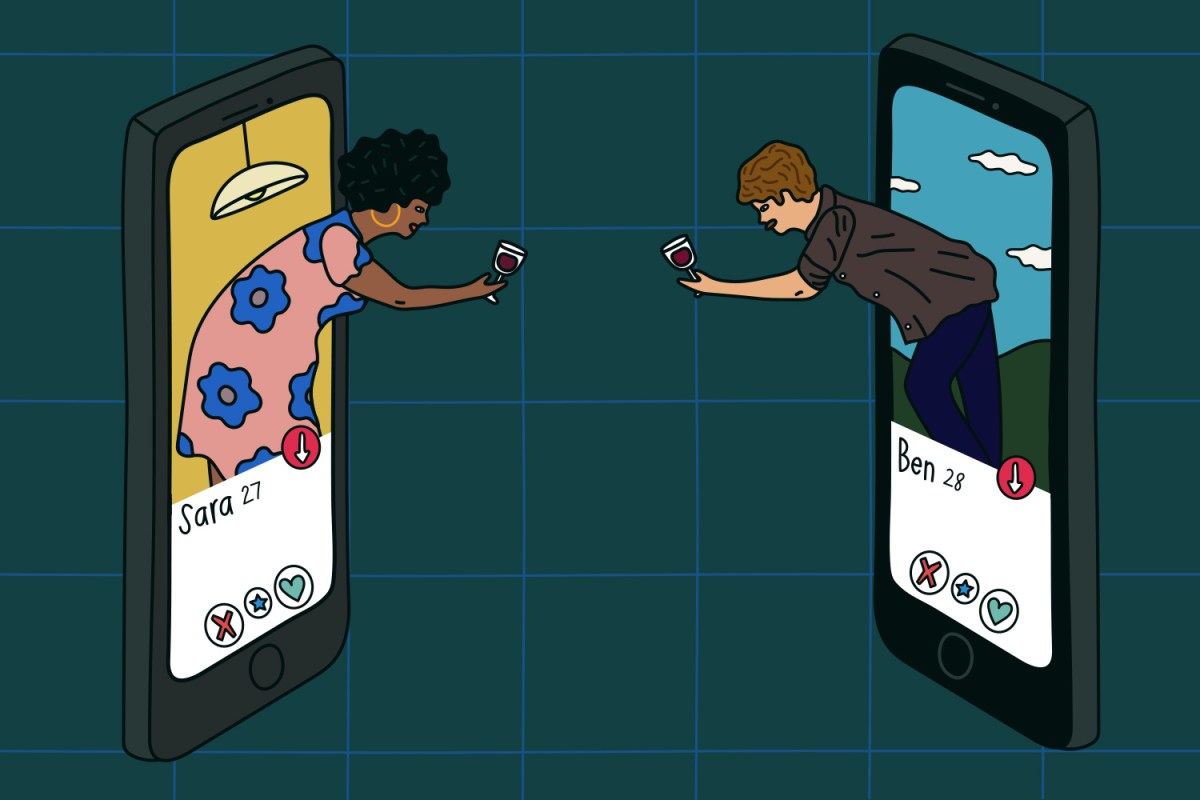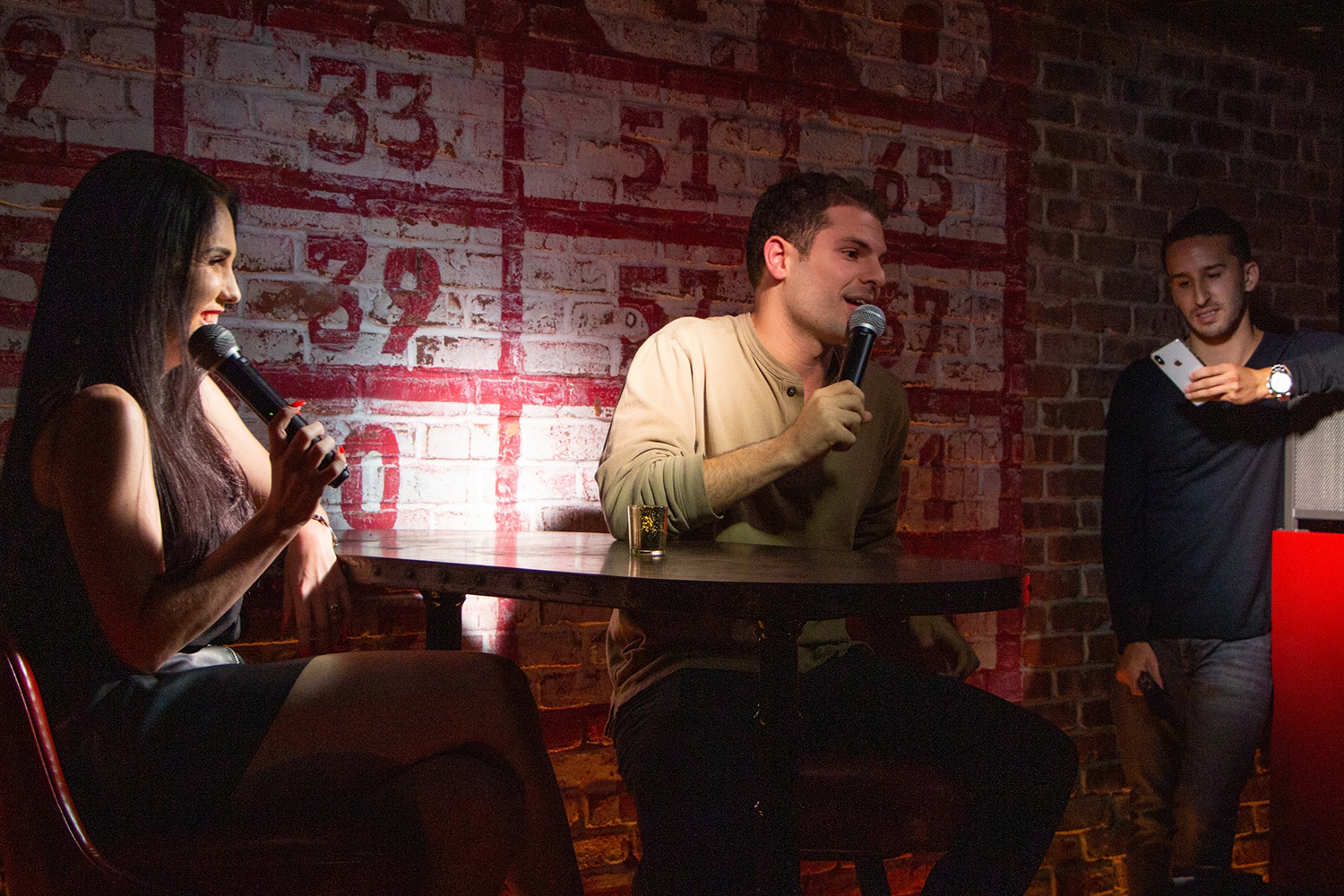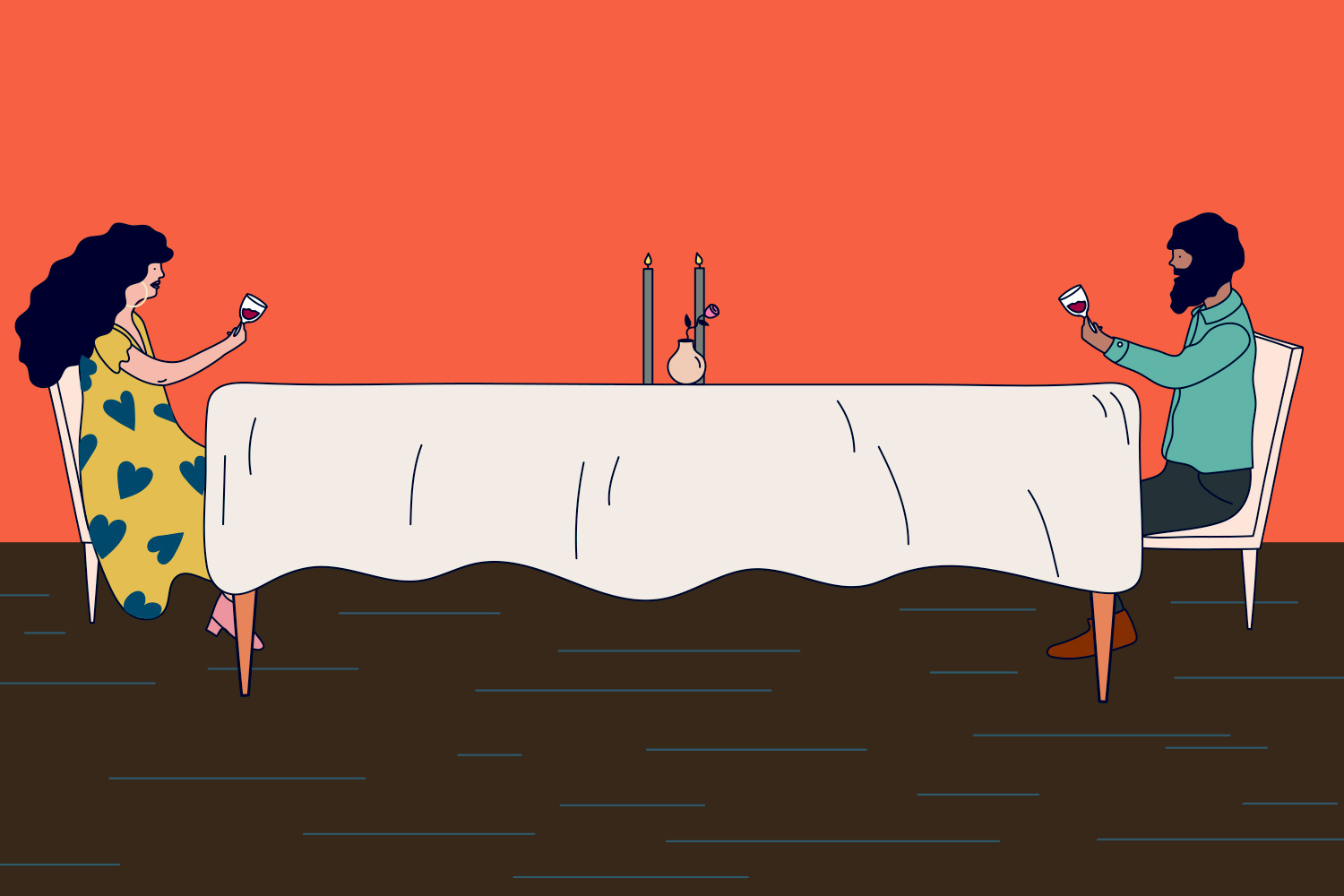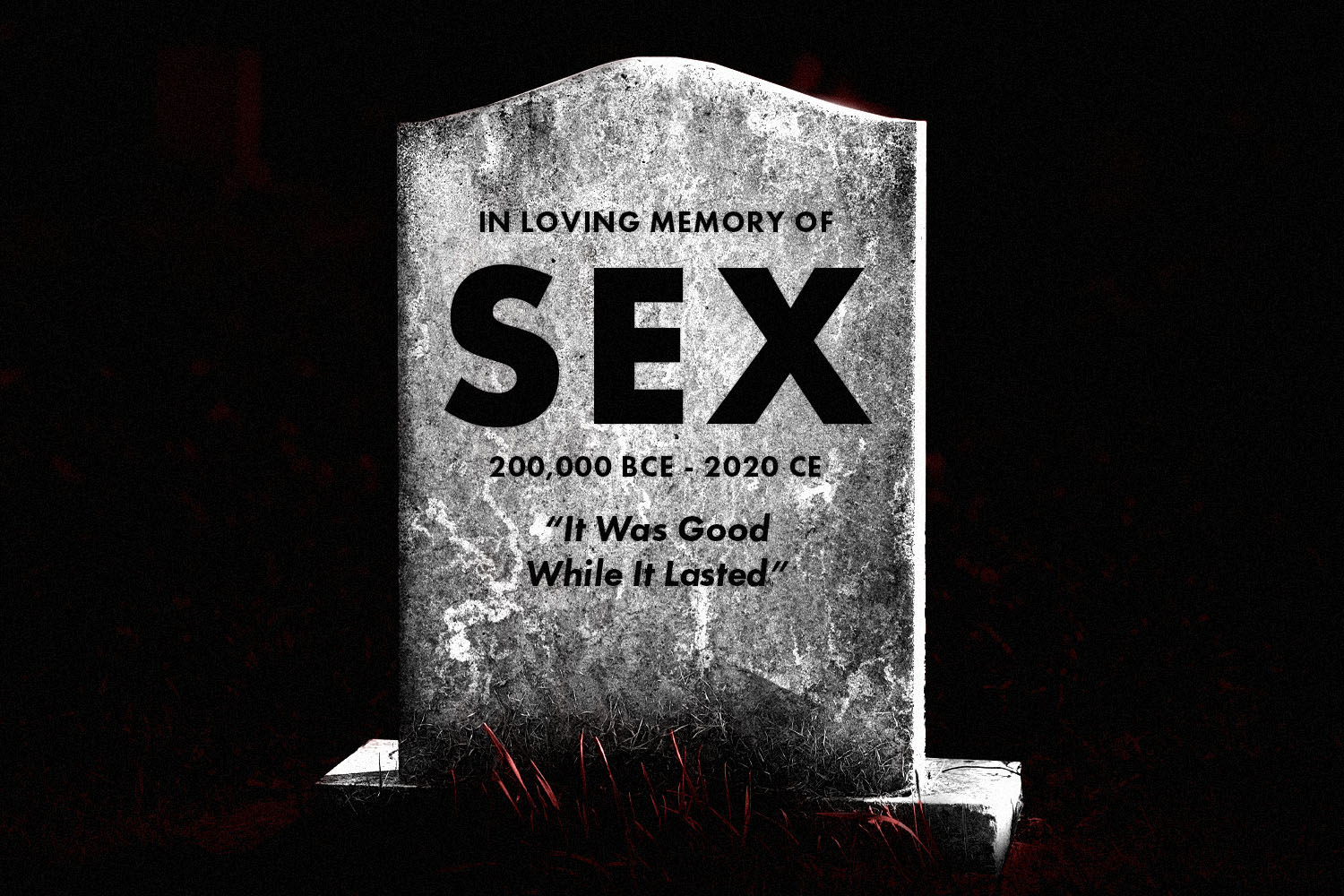When I reviewed The League’s new video speed-dating feature last year, its creators were advertising the rapid-fire video dating format as an innovative dating disruptor that promised “the death of the first date.” The idea was that users would be able rule out unfavorable first-date candidates more easily with the help of a two-minute video date, after which they could skip ahead with more promising matches into quasi-second-date territory on their first in-person outing.
What none of us expected at the time was that in a few short months, video dating would replace not only the first date, but all dates.
In the weeks since the COVID-19 pandemic pushed singles out of bars, restaurants and clubs, the video date has become the hottest ticket in town, because it’s the only ticket in any town. While a pandemic-imposed mass quarantine would have meant the death of all dating a mere generation ago, today’s singles had already welcomed the internet into their dating lives in the form of dating apps years ago, and the transition to a fully digitized era of quarantine dating was swift and predictable. Cosmopolitan is brimming with virtual date ideas and testimonies from those who swear by them, Elite Daily can tell you exactly how long they should last, various dating apps have followed in The League’s eerily foretelling footsteps and launched video dating platforms and features of their own, and InStyle promises we’ll all be better off for it.
The whole thing seems like a pretty easy fix, and once again the internet has proven our fearless quarantine lifeline. There’s just one problem. Online dating was never supposed to take place solely online.
For someone who has spent the entirety of her adult dating life on dating apps and the majority of that time acting as some kind of unofficial Tinder missionary trying to convert dating-app skeptics to the wonderful world of internet romance, I’ve been slow to accept this new phase of the modern dating landscape. I’ve been on first dates to burlesque shows, sex clubs and onstage in front of a live audience, but I won’t go on a video date. Please don’t ask.
Despite the lines often drawn between online dating and its “organic” counterpart, the former was never meant to actually replace the latter. Rather, online dating was only ever designed as a tool to more effectively reach the same end: an in-person date/relationship/hookup/what have you. When trying to sway anti-app-dating friends and family members, I often compared a resistance to dating apps to a similarly luddite resistance to using Google Maps. When friends boasted that they didn’t “need” dating apps, I always countered that no one does, just like no one “needs” Google Maps. Yes, you can just do it the old-fashioned way, but why bother blindly trying to navigate your own way when you have access to a modern tool that gets you to the same end more efficiently?
As quarantine eliminates the possibility of meeting a new partner in person, it seems many people former online dating skeptics are finally giving in, with dating apps reporting spikes in users, matches and conversations. But now that online dating has graduated from a modern tool to an entity in and of itself, what’s lost when dating goes entirely digital?
“I’ll be honest, it’s way better than nothing,” says Harrison Forman, one of the co-founders of the live dating show UpDating, which recently began hosting remote video dates. “It’s way better than not having any date.”
Forman, who chats with singles every week while casting for UpDating, finds that many people are increasingly relying on online dating while in quarantine. “If you are single today, you’re looking to connect with someone, now more than ever,” he tells InsideHook. “I almost think talking to a complete stranger is kind of cool in an apocalypse. It’s interesting.”
But while a shared global crisis certainly provides matches with a built-in ice-breaker, the absence of any real possibility of meeting in person — at least at any point in the foreseeable future — has a tendency to exacerbate a certain futility many online daters already feel while swiping through an endless cycle of mostly dead-end matches.
For me, quarantine app-dating feels like an unwelcome throwback to my earliest days of Tinder swiping in high school, when matches were primarily just people to text in between classes because arranging a date with a stranger from the internet would’ve required more parental deception than it was worth.
However, while endless messaging with no physical connection in sight feels juvenile at best, if not depressingly pointless, the more optimistic perspectives dominating the video chatting space tend to argue that this prolonged period of getting to know one another could actually help matches form deeper, more lasting connections.
Forman reports that UpDating has seen a number of successful matches since going remote just a few weeks ago, which he attributes to the fact that many people may feel less pressure on a video date. “I think it’s different than a date in real life, where it definitely is more serious. This is like a game. The FaceTime date is a game. So, have fun with it.”
However, as the co-founder of a live dating show designed, in part, to help today’s singles find romantic connections offline, Forman admits our current era of remote dating has its limitations.
“Spontaneity is hard,” says Forman. “The magical moments when you really start connecting with someone are all spontaneous, and it’s almost impossible to have that right now.”
A video date can’t recreate the moment when “grabbing drinks” on a first date turns into dinner, which turns into more drinks which turns into late-night dancing at some club in Koreatown which turns into a classic New York City sidewalk makeout.
“That’s when moments, magical moments in dating, can really escalate,” says Forman. “It’s about spontaneity, and this is not an environment that helps adventure.”
Then again, the various optimistic takes on video dating predict that removing the physical aspect (i.e., the 3 a.m. post-date sidewalk makeout) may actually help daters form deeper connections. But as Forman points out, the physical nature of romance and dating isn’t strictly sexual, and those physical connections can often help forge, rather than hinder, emotional and mental connections.
“Connecting with someone, it’s emotional, it’s intellectual, and then there’s the physical component,” he tells InsideHook. “One is completely gone right now, and it’s not even just about sex. It’s a kiss. It’s holding hands. Their aura, their energy, looking at their eyes. When I look into someone’s eyes over FaceTime, I can’t even tell what color they are.”
A virtual date may inevitably pale in comparison to its pre-pandemic counterpart, but for many singles, it’s still better than nothing.
Whether you’re looking to get into shape, or just get out of a funk, The Charge has got you covered. Sign up for our new wellness newsletter today.























